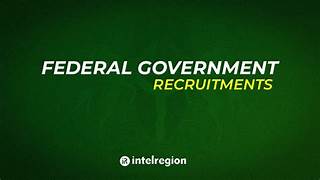18 Types of Federal Government Jobs (Including Benefits)
In today’s competitive job market, federal government jobs remain one of the most secure and rewarding career paths in the United States. With strong benefits, job security, structured career progression, and opportunities to make a real impact, government positions attract professionals from all walks of life. But what exactly are your options? And what kind of roles does the federal government actually offer?
In this article, we’ll break down 18 types of federal government jobs, explore the roles and responsibilities involved, and highlight the benefits that come with working for Uncle Sam.
✅ Why Consider a Federal Government Job?
Before diving into the list, let’s take a quick look at why millions of Americans prefer working for the federal government:
- Job Security: Government positions are less vulnerable to layoffs.
- Generous Benefits: Health insurance, pensions, paid time off, and tuition assistance are common.
- Diverse Opportunities: From science to law enforcement to education, the federal sector spans almost every field.
- Career Growth: Structured promotion paths and professional development programs.
- Work-Life Balance: Reasonable hours, remote work options, and family leave.
Now, let’s explore the 18 most popular types of federal government jobs and what makes each one special.
1. Administrative Officer
What they do: These professionals manage daily operations in federal agencies, ensuring workflow, compliance, and coordination among departments.
Typical agencies: Department of Homeland Security, Environmental Protection Agency
Requirements: Bachelor’s degree + experience in admin roles
Benefits: Strong job stability, opportunities to move into management
2. Federal Law Enforcement Officer
What they do: These include FBI agents, DEA officers, U.S. Marshals, and ATF agents who protect national security and enforce federal laws.
Typical agencies: FBI, DEA, U.S. Secret Service, ICE
Requirements: Background check, physical fitness test, training academy
Benefits: Hazard pay, early retirement, comprehensive insurance
3. Foreign Service Officer
What they do: Represent U.S. interests abroad, assist American citizens, and handle diplomacy.
Typical agencies: U.S. Department of State
Requirements: Foreign Service Officer Test (FSOT), bachelor’s degree, international experience
Benefits: Housing allowance, relocation benefits, global career opportunities
4. Economist
What they do: Analyze financial data, provide reports for policy decisions, and forecast trends.
Typical agencies: Federal Reserve, Bureau of Economic Analysis, Department of Labor
Requirements: BA/MA in economics or statistics
Benefits: High salaries, research opportunities, impact on national policy
5. IT Specialist (Information Technology)
What they do: Design and maintain government networks, databases, and cybersecurity systems.
Typical agencies: Department of Defense, NASA, IRS
Requirements: Degree in computer science/IT, relevant certifications
Benefits: Tech stipends, modern workspaces, telework flexibility
6. Human Resources Specialist
What they do: Manage recruitment, payroll, training, and labor relations for government employees.
Typical agencies: Office of Personnel Management (OPM), Department of Veterans Affairs
Requirements: Degree in HR, psychology, or related field
Benefits: Job diversity, people-focused roles, great internal mobility
7. Environmental Scientist
What they do: Study and address environmental issues like pollution, conservation, and climate change.
Typical agencies: EPA, Department of Energy, National Park Service
Requirements: Degree in environmental science, biology, or chemistry
Benefits: Research funding, meaningful work, fieldwork opportunities
8. Healthcare Professional (Doctors/Nurses)
What they do: Deliver healthcare services to veterans, military personnel, and underserved populations.
Typical agencies: Veterans Health Administration (VHA), Indian Health Service
Requirements: Medical or nursing degree, license
Benefits: Loan forgiveness, federal pension, clinical training
9. Postal Worker
What they do: Deliver and sort mail, manage postal logistics, and assist customers.
Typical agencies: U.S. Postal Service (USPS)
Requirements: High school diploma, background check, exam
Benefits: Union support, reliable hours, federal insurance
10. Attorney (Federal Lawyer)
What they do: Prosecute or defend federal cases, advise agencies on legal matters.
Typical agencies: Department of Justice, U.S. Attorney’s Office
Requirements: Law degree, bar membership
Benefits: Government pension, courtroom experience, public service prestige
11. Intelligence Analyst
What they do: Analyze threats, detect espionage, and help shape intelligence reports.
Typical agencies: CIA, NSA, FBI
Requirements: Degree in political science, international relations, or similar + security clearance
Benefits: Mission-driven work, high clearance jobs, strong pay
12. Budget Analyst
What they do: Manage federal budgets, monitor spending, and evaluate financial performance.
Typical agencies: Office of Management and Budget, Department of Treasury
Requirements: Degree in finance, economics, accounting
Benefits: Financial oversight roles, strong salary range, policy influence
13. Civil Engineer
What they do: Design and oversee infrastructure projects like roads, dams, and airports.
Typical agencies: Army Corps of Engineers, Department of Transportation
Requirements: Engineering degree, PE license (preferred)
Benefits: Project variety, good pay, national development impact
14. Social Worker
What they do: Support veterans, at-risk populations, and underserved communities.
Typical agencies: Department of Veterans Affairs, HHS, Department of Justice
Requirements: MSW (Master of Social Work), license
Benefits: Counseling roles, emotional fulfillment, loan forgiveness
15. Accountant/Auditor
What they do: Review financial reports, ensure regulatory compliance, detect fraud.
Typical agencies: IRS, GAO, Department of Defense
Requirements: CPA certification (preferred), accounting degree
Benefits: Steady hours, financial responsibility, structured promotions
16. Meteorologist
What they do: Forecast weather patterns, research climate trends, and support disaster preparedness.
Typical agencies: National Weather Service, NOAA
Requirements: Degree in atmospheric science or meteorology
Benefits: High-tech facilities, field travel, research-based roles
17. Education Specialist
What they do: Develop federal education policies, training programs, and public initiatives.
Typical agencies: Department of Education, DoD Education Activity
Requirements: Degree in education or instructional design
Benefits: Influence on curriculum, federal grants, remote-friendly roles
18. Statistician/Data Scientist
What they do: Collect and interpret data for public policy, census, and research.
Typical agencies: U.S. Census Bureau, CDC, BLS
Requirements: Math/statistics degree, coding skills (e.g., R, Python)
Benefits: Research-focused work, high data integrity, cutting-edge tools
💼 General Benefits of Federal Government Jobs
Almost all federal roles come with a standardized package of benefits that far exceed many private-sector offerings:
1. Retirement Plans
- Federal Employees Retirement System (FERS)
- Thrift Savings Plan (TSP) with agency matching
2. Health Insurance
- Comprehensive medical, dental, and vision plans
- Option to extend benefits post-retirement
3. Paid Time Off
- 13 to 26 days annual leave depending on service years
- 13 days of sick leave per year
- 11+ federal holidays
4. Job Stability
- Tenure-style protections
- Strong union representation for many roles
5. Work-Life Balance
- Flexibility in hours and remote work options
- Generous parental leave and childcare assistance
6. Career Advancement
- In-house promotions
- Support for higher education, certifications, and training programs
📌 Tips for Getting a Federal Job
- Use USAJOBS.gov – The official portal for federal job openings.
- Tailor your resume – Use the federal resume format, which is more detailed than private-sector CVs.
- Meet eligibility requirements – Check for degree needs, clearance, or citizenship requirements.
- Prepare for assessments – Some roles require written tests or personality evaluations.
- Be persistent – The federal hiring process can take several months.
✨ Conclusion
Whether you’re passionate about law enforcement, data, education, or science, there’s a federal government job for your skill set and ambition. These 18 types of federal positions showcase just how diverse and rewarding public service careers can be. With exceptional benefits, long-term growth, and the opportunity to contribute to national progress, it’s easy to see why federal jobs remain one of the most secure and respected career choices in America.
If you’re thinking about working in the public sector, now is the perfect time to start exploring. The government is hiring—and your future career might just start with that application on USAJOBS.gov.
ying to any of these roles!


